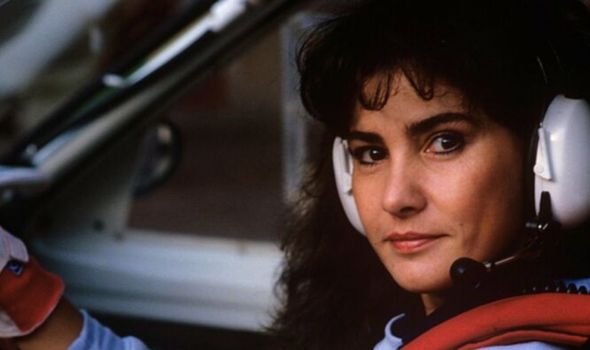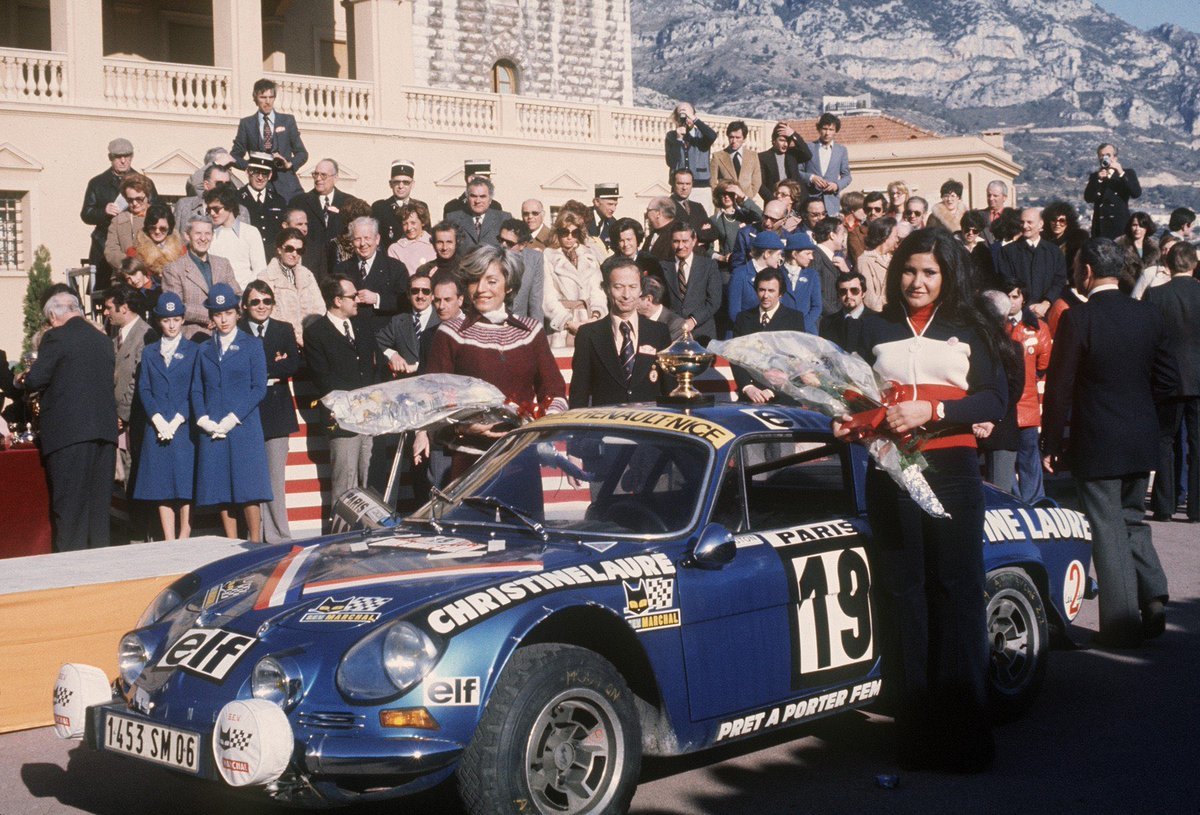Celebrating Women in Automotive | Michele Mouton
Written by Taylor Shinobu Williams
During the age of men, in quite possibly the most dangerous class of motorsport ever, stood a woman that just wanted to be recognized. She just wanted to stand tall against her peers, proving that a woman could make it the male dominated realm of motorsport. But not just any motorsport, group B rally, and not just any woman, Michèle Mouton. Ending her career with 5 victories, 9 podiums, and 162 stage wins, while also becoming the president of the FIA Women’s Commission, she trail blazed a path for everyone after.
Before we even get fully into it, we have to quickly talk about the importance of Group B Rally in motorsport. Group B, in its only 4 years of existence, is considered to be one the wildest, most unregulated and dangerous motorsport, with multiple deaths from both drivers and spectators. There were very few restrictions to how manufacturers could build their car: use whatever materials you want and make as much power as you want. Which made for insanely fast cars, even by today’s standards. Cars like the Audi Quattro, Ford RS200 and even the Porsche 959 were designated for Group B. But after the 4 seasons, and the deaths of 4 drivers and 3 spectators, Group B was shut down for good in 1987.
Mouton was born on June 23rd, 1951 to jasmine and rose farmers outside the town of Grasse, France. During her young life, Mouton didn’t have a particular interest in motorsport, with her only experience being driving her father’s Citroen 2CV. She would go on to study law in college, but was asked by a friend of hers, Jean Taibi, to come practice the 1972 Tour De Corse with him, which sparked her love of rally. The following year, she was asked once again by Taibi to be his co-driver for the Monte Carlo Rally, in the first ever year of the World Rally Championship. Her father advised her that if she wanted to make a career in rallying, she should become a primary driver herself, and bought her a car to see if she could be successful.
The car he bought her? An Alpine A110 (much like the one we currently have in the museum,) which debuted in the inaugural season of the World Rally Championship (WRC). Her first race was at the 1973 Rallye Paris, then the Tour de France Automobile, followed by finishing 8th overall at a complimentary event to the Tour De Corse, while also contributing to Alpine-Reanult’s manufacturer's championship that year. Throughout 1974 and 1975 where she consistently placed well and go on to win the Ladies French-European championship for both years.
Just days before her 23rd birthday in 1975, Mouton was given the chance to race on an all women’s team in the 24hr’s of Leman’s, in a Monyet Prototype. Using her rally ability to adapt, he rainy conditions and night driving suited her well, being able to pass a lot of opponents and even some in the faster classes, where her team would take first in their class, and finish 21st overall. She was quoted as saying “I remember it began to rain, I had a lot of fun out there! My pit crew told me to stop but I carried on and passed even some of the big cars! The conditions suited me to a tee. In fact, it was as if I were rallying at Le Mans! I just relied on my rallying skills and experience. The night didn’t bother me either as I even did some long stints. The race was a completely new environment for me and extremely interesting.”
Throughout 1977 to1979, Michele would go on to win many podiums in varying cars, everything from a Fiat 131 Abarth, to a Porsche Carrera RS and a Lancia Stratos. But in 1980, she was given a revolutionary opportunity to race for the newly created Audi Sport team, in their newly built Quattro, the first turbo and all wheel drive rally car, a machine that would dominate the rally world. At the time, Audi making the decision to have a woman on their team over many of the other male drivers was considered almost blasphemous by many. Mouton was not deterred, saying that she felt like she had nothing to prove, and only wanted to be at the same level as her counterparts.
In response to Mouton being in WRC, the 1981 championship winner Ari Vatenan was quoted as saying “The day I will be beaten by a woman I will stop racing.”
Mouton’s first official competitive season with Audi in the WRC wouldn't come until 1981, where she would secure a win at the San Remo Rally. This was the first time a woman had ever won a round of the WRC, quite literally making history, for her, and her new female co-driver, and later long time friend, Fabrizia Pons. This made her a real contender, and not someone the other drivers could brush off. But who came second that round? Ari Vatenan, and no, he did not retire after that.
Unfortunately, throughout the rest of the 1981 season, she wouldn’t be able to stand on the podium again, although winning many stages and having the fastest times, due mostly to mechanical failures on her Quattro. Audi would continue to refine their car, and Mouton her skills, into the 1982 season. She would take the victory three times, in Portugal, Greece, and Brazil, which put her second in points behind the 1980 champion, and rally legend, Walter Röhrl going into the second to last round of the season on the Ivory Coast. If she could take the win, she would be just two points behind Röhrl in the championship, and would only need a third place win in the final round to take victory in the championship, even if Röhrl took first.
Just days before the start of the rally, Mouton received the disheartening news of her father passing away. Although having the desire to not participate, Mouton was convinced by her mother, who assured her that her father would have wanted her to race. And race she did, pulling out over an hour lead against Röhrl. Ultimately it would be the Quattro that let her down again, suffering many mechanical failures, dwindling down her lead. Mouton knew she had to push exceptionally hard to make up for lost time, in doing so, causing her to crash twice, with the second one putting her car out of commission.This effectively handed the championship to Röhrl in the process. She was not discouraged however, saying “I tried, we tried everything and it didn’t work, that’s all. That’s life. You cannot win all the time. I lost so much compared to the competition.” She would end up taking the International Rally Driver of the year award though.
After the 1982 season, Mouton went through her next couple seasons taking some higher positions, but wouldn’t successfully get another win in the WRC. In 1984 Audi took her and the Quattro to Pikes Peak Hillclimb, where she secured first in her class and 1985, where she took the overall win and beat the previous record set by Al Unser Jr., nephew of legendary ten time Pikes Peak winner Bobby Unser. Bobby Unser was very upset by his nephew being beaten by both an European car and a woman, and apparently had some choice words to say about it, to which Mouton replied, “If you have the balls, you can try to race me back down as well.”
With the end of the Group B era in 1985, Mouton ended her career, having previously stated, “if they stop the Group B now, it will be the end for me." She would go on to start a family, but would not end her career there, still driving support for Peugeot, and participating in many exhibition events throughout the next two decades. In 2010, she became the first president of the FIA Women & Motorsport, to bring women into the male dominated sport. Mouton hoped to pave the way for many more women to get their start in any form of racing.
Mouton’s legacy extends through every faucet of motorsport even having a documentary made about her, named “The Queen of Speed,” but Mouton never did it for fame or to be the best. As she put it, “I never needed, or wanted or thought I had to justify myself in anything. I did all that for myself. Not to be the only woman in their world. What has always been important was to prove to myself that I was able to do it and to reach their level but it was for me, not for them. I just wanted to do the same, that’s all.”









